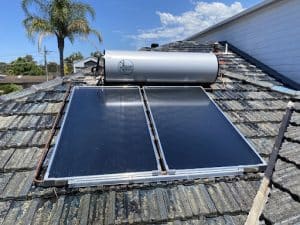
4 Advantages of an AquaMax Hot Water System
If you are looking for a hot water system that

A gas leak is perhaps the most serious when it comes to emergencies. Not only is it toxic, but there are risks of fire or explosions which emphasise how important it is to handle the emergency quickly.
So by learning what signs to look for and what to do when you notice a gas leak, you can help keep everyone present safe.
There are many ways to determine whether you have a gas leak using either your sense of smell, sight, or hearing.
The most obvious sign is the recognisable scent of natural gas. That being a foul, sulphur-like odour. The addition of the chemical Mercaptan causes this rotten egg smell that allows us to detect a gas leak easily. You’ll notice the scent when you’re near your gas meter most of the time. However, if you catch the scent while inside, you must contact us at Atomic Hot Water to fix this immediately as this is a real cause for concern.
With plants susceptible to atmospheric changes, the health of your plants is a good indicator of whether you have a gas leak, if there are no changes to sunlight or if it is being watered. It’s beneficial to catch its scent when faced with a quieter and more challenging leak.
Small disconnections in the gas line where the gas can escape cause the soft hissing noises. Most of the time, this results from everyday wear and tear. A simple way to test this is by using the bubble method, spraying a mix of dish soap and water onto the suspected area and looking for bubbling.
Another tell-tale sign is if your gas flame isn’t blue. When the gas supply is affected to reach the pilot, the flame will often be red, orange, or yellow.
When gas isn’t combusting completely, exhibited when the flame is discoloured, carbon monoxide is produced in excess. Continued breathing of this poisonous gas leads to various symptoms, including headaches, nausea, coughing, fatigue, and muscle soreness. If you notice any of these symptoms and believe it’s related to a gas leak, see your GP as soon as possible, as you may have carbon monoxide poisoning.
Sometimes, gas leaks can be detected through unexpected increases in your gas bill. This is often the case for small leaks that take a while to smell or hear. So comparing your gas bills could help catch a leak early.
It’s important to rule out increased use of gas appliances or change weather conditions to the rise witnessed in your gas bill before jumping to the conclusion of a leak.
If there are tell-tale signs of a leak, acting immediately is crucial. Gas leaks are hazardous, and having a fast response saves lives. So if you believe there is a gas leak, please do the following:
Knowing what to avoid during a suspected gas leak is as crucial in keeping everyone safe as knowing what to do. Never:
When our gas plumbing professional arrives at your property, they will use a gas leak detector to locate the source of the leak. Gas leaks can be from a damaged connection, section of pipe, or the appliance itself, and even can be in more than one place. After identifying the source of the leak, our gasfitter will determine the most appropriate method of repairing the damage depending on the source in question. Being thorough in detecting and repairing gas leaks is crucial to making your property safe again and preventing you or your family from being put at risk again in the future. As a general rule, we recommend having your gas connections checked at least once every year.
Think you might have a gas leak? Don’t hesitate and call 1300 763 734 to have it resolved ASAP! At Atomic Hot Water, we have decades of experience and always provide reliable, affordable, and professional service throughout Sydney.

If you are looking for a hot water system that

Your hot water system will inevitably break down while you

If you want a hot water system that is good
